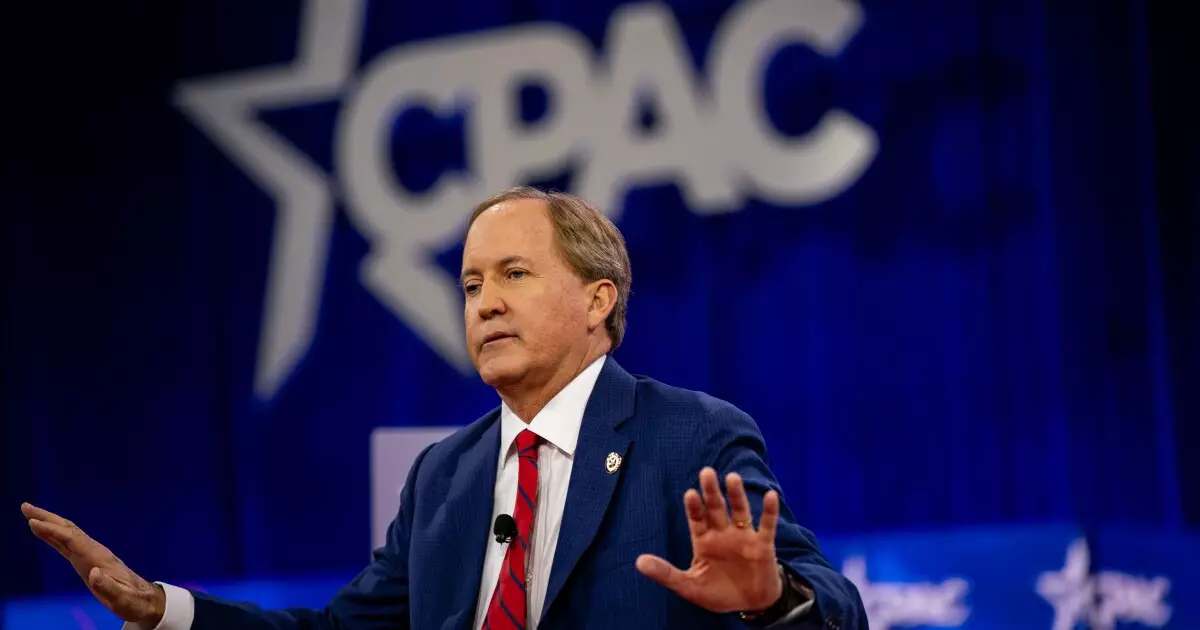In recent years, the intersection of financial institutions, environmental concerns, and state-mandated regulations has sparked heated debates across the United States. Central to this discourse is Texas Attorney General Ken Paxton’s review of prominent banking institutions, notably Wells Fargo. The outcome of this scrutiny, which culminated on the last Friday of October 2023, not only marks a significant moment for Wells Fargo but also underscores Texas’ unique approach to aligning its financial practices with its fossil fuel industry.
The Net-Zero Banking Alliance and Its Controversy
The Net-Zero Banking Alliance (NZBA) is an initiative aimed at propelling the banking sector to minimize its greenhouse gas emissions, working towards achieving net-zero emissions by 2050. In an era marked by growing climate change awareness, many institutions have embraced such commitments as a pillar of responsible banking. However, Texas law, enacted in 2021, stands in stark contrast to such initiatives, prohibiting state contracts with entities that “boycott” the fossil fuel industry. This juxtaposition sets the stage for Paxton’s controversial review of financial firms, including household names such as Bank of America and JP Morgan.
Wells Fargo’s predicament illustrates a broader conflict between state policy and corporate responsibility. The Attorney General’s inquiry into whether these firms adhered to their environmental commitments raised critical legal and ethical questions about the role financial institutions play in environmental sustainability. The eventual decision for Wells Fargo to withdraw from the NZBA signifies a response not just to regulatory pressure but also illustrates the intimidation faced by banks wary of losing access to lucrative governmental contracts.
Paxton’s Stance and the Response from Wells Fargo
While announcing the conclusion of the review, Attorney General Ken Paxton stated that Wells Fargo’s departure from the NZBA was a positive development, encouraging other financial institutions to follow suit. His remarks reflect a broader ideological stance, prioritizing Texas’ oil and gas industries over global climate initiatives. Paxton’s advocacy for dismantling fossil fuel boycotts encapsulates the ongoing tension between state economic interests and global climate realities.
Wells Fargo’s decision to part ways with the NZBA has left many questioning the bank’s commitment to environmental stewardship. When responding to inquiries regarding its future stance on environmental, social, and governance (ESG) policies, Wells Fargo merely confirmed its exit from the alliance, revealing an ambiguous commitment to sustainable practices. This reluctance to expand on their future strategies could signal continued disengagement from proactive environmental strategies, a worrying prospect for sustainable banking advocates.
The ramifications of this review extend beyond Wells Fargo. A lawsuit filed by a business group challenges the constitutionality of the Texas law that allows for such regulatory scrutiny. This case highlights the confrontation between state legislation aimed at promoting local economic interests and the broader trends of corporate responsibility and environmental governance.
With Texas positioning itself as a strong adversary to the ESG movement, banks that continue to underwrite bonds in the state face an uncertain future. Notably, Wells Fargo’s involvement in high-profile bond deals during the review period—the Dallas Fort Worth International Airport’s revenue bond sale and a notable transaction for the Texas Transportation Commission—demonstrates the complicated balancing act financial institutions must navigate in fulfilling both state obligations and stakeholder expectations.
Texas’ proactive stance against perceived anti-fossil fuel agendas demonstrates the challenges financial institutions face in reconciling state interests with global expectations concerning climate change. If Wells Fargo’s experience is any indication, navigating these waters demands not only strategic adaptation but also a firm commitment to corporate ethics that considers the long-term implications of environmental policies.
The conflict brewing between state policies like those in Texas and the overarching need for sustainable finance will likely shape the landscape of American banking for years to come. As the debate continues to unfold, stakeholders in the financial sector must assess their roles in either promoting or hindering sustainable practices in the face of regulatory pressures, ultimately determining who pays the price in this ongoing tug-of-war between economic growth and environmental responsibility.

